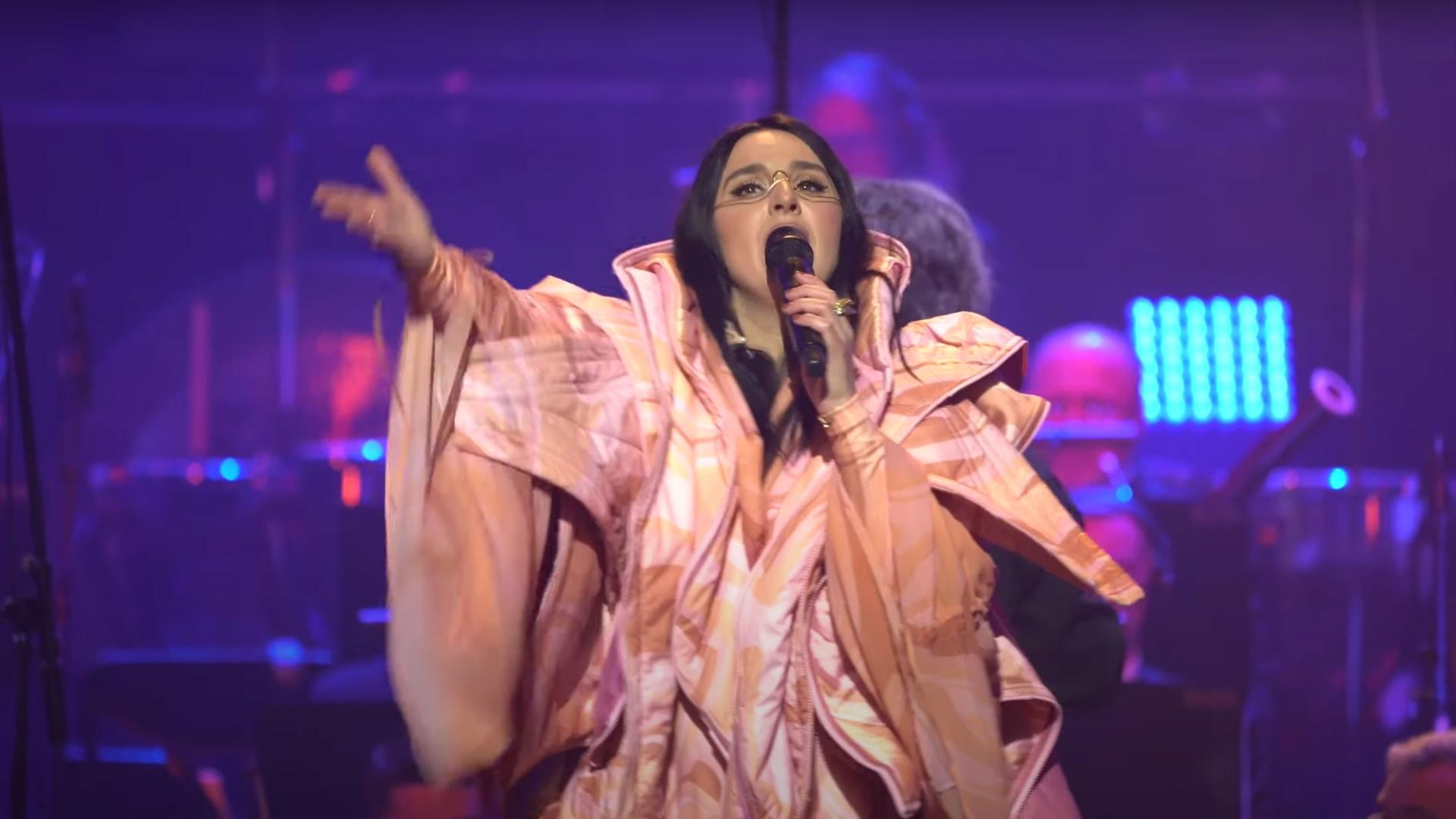When Crimea is mentioned in the news, it’s often in the context of war — Russia has occupied Ukraine’s Crimean peninsula since 2014.
But when Ukrainians hear the word Crimea, they often think of it as a bastion of culture and music.
Susana Alimivna Jamaladinova, known simply as “Jamala,” is one of Ukraine’s most famous singers. She won the Eurovision song contest in 2016.
Jamala, an Indigenous Crimean Tatar, often talks about how her heritage shapes her music.
“My whole family are musicians,” Jamala told The World. “My mom, she is a piano teacher. My father, he is an accordion player and he’s a really good folk singer. He sings Crimean Tatar songs.”
One song that Jamala said exudes strong emotions is “Bizim Taraf,” or “My Side” in English, a Crimean folk classic passed down by her paternal grandmother.
Growing up, Jamala said she was encouraged to listen to all musical genres, from jazz to opera and folk to rock.
And then she started to write her own music.
Jamala recently released an album called “Qirim,” or “Crimea.” It includes more than 80 musicians, a double symphony orchestra and folk musicians who created a total of 14 ancient Crimean Tatar songs.
“It’s like a diary,” she said, of various Crimean characters in folk history.
In one song, “Alim,” listeners learn about a famous Crimean akin to a 17th-century Robinhood who fought for the rights of poor people.
“The belief in his strength was huge,” Jamala said.
Jamala drew inspiration from film composers such as Hans Zimmerman and Ramin Djawadi to create a “soundtrack” for Crimea that was cinematic in scope.
“Because, you know, the ‘Game of Thrones,’ they built seven kingdoms with different melodies, and we feel it in the music. Oh, my God. It was a real inspiration for me,” she said.
Another song on the album, “Yosmam,” tells a heartbreaking story passed down by her great-grandmother about a village girl waiting by a window for her boyfriend — who never arrives.
“Nowadays, it sounds [like,] ‘OK, whatever. I’ll find another one.’ But at that time, it was a huge tragedy. ‘You [crushed] my heart,’ and we feel it at the end of the song,” Jamala explained.
The album was nearly completed, Jamala said, when Russia’s full-scale invasion of Ukraine started in February of 2022. They had to stop working on it while Kyiv was under attack.
During this time, Jamala said she had a dream to include new sounds at the end of the album that acknowledged the atrocities that occurred in Bucha and Mariupol.
“Russians can steal our territory nowadays, but they can’t steal our identity, our songs,” Jamala said.
“I want to say to the whole world that we exist. And for me, it’s important to give a voice to my homeland, Crimea.”
Jamala’s songs in the order they appear in the segment:
- “Bizim Taraf” (not on the latest album)
- “Alim”
- “Yosmam”
- “Outro”
- “Dağlarniñ Yollari”
Our coverage reaches millions each week, but only a small fraction of listeners contribute to sustain our program. We still need 224 more people to donate $100 or $10/monthly to unlock our $67,000 match. Will you help us get there today?
